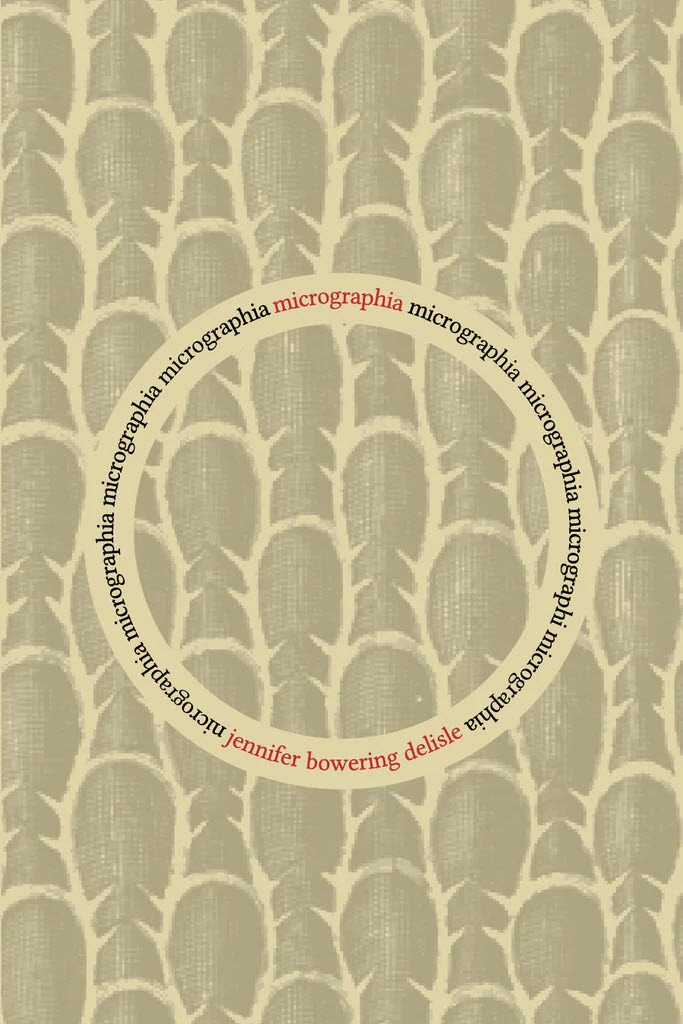Micrographia by Jennifer Bowering Delisle
Reviewed by Gordon Phinn
It is not uncommon in Canlit for worthy books in almost any genre to get overlooked in any season’s deposit of new titles. I feel it is incumbent upon me as a committed reviewer to point up as many of these as I am able. On a recent daytrip to a small town some miles for my home I came across a charming independent bookstore with its share of such neglected orphans. Jennifer Bowering Delisle’s memoir Micrographia from 2023 caught my shelf-wandering eye and a quick examination revealed a thematic thread close to my heart.
While engaged in an extended struggle with a debilitating spell of infertility, the author had to confront her mother’s decline into bodily collapse and creeping dementia. The condition, a degenerative neurological disease, is termed Multiple System Atrophy (MSA), and like many of its accursed kindred, can be slowed but not halted. As is becoming common after our homegrown legal innovation of 2015, her mother optioned MAID, the medically assisted dying process that can effectively shorten the gradual but unavoidable cessation of bodily functions resulting in a vegetative state. Having read and reviewed Dr. Stephanie Green’s This Is Assisted Dying, the first account out of the starting gate in 2016 of her own signing on to the then new legislation, and a remarkable document in its own right, her account charted much of her initial case load, often in distant rural communities reached only by plane, the challenges posed in assessment and accurate diagnosis, and the anguished and bitter push back from family members wishing to impose their ethical demands, who had found, much to their shock, that the new law left them no legal standing.
A literary artist of no mean achievement, Delisle employs a variety of approaches in mapping out the maze of narrative threads crisscrossing her life in that era. Radical juxtapositions and sudden yet smooth timeshifts gamble with the reader’s perceptions and assumptions. Modernist linearity and post-modern contempt for such collide in an almost feverish mash-up that some might find irritating and others satisfying: I found myself in the latter category. That she makes space for drama, tragedy, fulfillment and resolution in barely one hundred pages is a testament to her vision and discipline. One pauses breathlessly between praise of innovative genius and barefaced emotional vulnerability.
“My children are watching PAW patrol so I can read Sharon Olds. Curve of simile, more bare than skin, freed verse slipping in and the pups must catch the runaway elephant. Neuroscientists call screens “electronic cocaine” and “digital heroin”. And there are dishes in the sink, banana glue beneath the table. Dust bunnies so big my kid could push them in her little stroller. But there is poetry, slow lick of lyric, sibilant, aspirate, the line, the rhythm, spondee, trochee, urging to be heard.”
“My mother has chosen November 28th as the day she will die. We have two weeks, then, to say goodbye. In some ways we have been saying goodbye for years, as we have watched her limbs lock, her head become too heavy for her neck, her voice disappears into her chest.
A friend asks me if I am angry with my mother. It hadn’t occurred to me that this could be a legitimate way to feel. Mom can hardly take the pain in all her joints. On several mornings she has awakened long before her body, unable to move. Disabled lives are worth living, but my mother can see her worsening symptoms, her approaching death, and she says she is sure of her choice. The baby shoves a toy in her mouth, and my mom succumbs to sobs that shake her whole body, leaving her gasping. I wipe her nose.”
A memoir in the form of essays and reminiscence then, abounding in classical references and potted histories of medical conditions, (such as micrographia itself where cursive writing becomes impossibly tiny) often opulent in educative detail, it manages to fruitfully meander around its nebulous goal, such that a reader comes to savour his puzzlement. One applauds the accomplishment and no less the exemplary design/production by Gordon Hill Press. Seek it out and be rewarded.
About the Author
Jennifer Bowering Delisle is the author of a poetry collection, Deriving (2021) and a lyric family memoir, The Bosun Chair (2017). She has a PhD in English and frequently teaches creative writing classes and workshops. She is also a board member of NeWest Press. She lives in Edmonton/Amiskwaciwâskahikan/Treaty 6 where she is an instructional designer and a mother of two. Find her online @JenBDelisle and www.jenniferdelisle.ca.
About the Reviewer
Gordon Phinn, a longtime resident of Oakville, Ontario has been active in literary production since 1975, with a number of titles in a variety of genres to his credit: Non-fiction, fiction, poetry, criticism and memoir. His early critical work for Books In Canada and Paragraph are collected in It’s All About Me, and his four year reviewing stint at WordCity will be soon available as Joy In All Genres. Other recent essay collections: Bowering and McFadden, Laughing At The Universe Of Lies and Consciousness: A Primer. A novel, An American In Heaven, a memoir Moving Through Many Dimensions and a poetry collection, Winter, Spring and Eternity’s Seduction. He is currently editing a collection of essays in celebrating the work of Laurence Hutchman, to be published by Guernica in 2026.
Book Details
Publisher : Gordon Hill Press
Publication date : Sept. 1 2023
Language : English
Print length : 150 pages
ISBN-10 : 1774220946
ISBN-13 : 978-1774220948





So glad to see this fine review of an excellent book. Micrographia is a book dear to my heart.